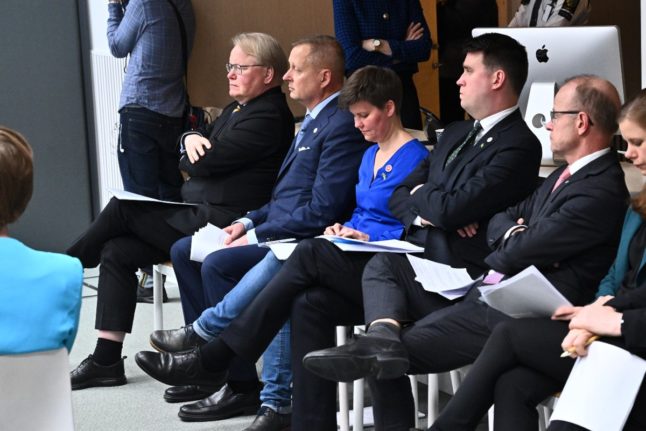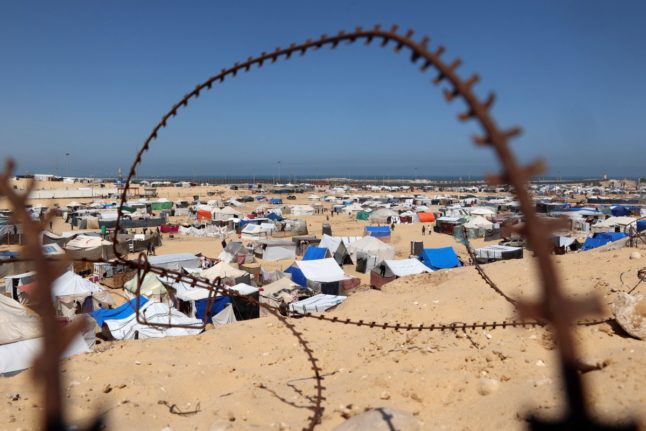What is the Swedish Defence Commision?
The Swedish Defence Commission is a cross-party forum which seeks to ensure broad political agreement around Sweden’s defence requirements. It brings together representatives of all eight parties in the Swedish parliament, with two each from the Moderates, Sweden Democrats and Social Democrats and one each for the other parties.
There are also advisers and experts from the Ministry of Justice, the Ministry for Foreign Affairs, the Ministry of Defence, the Ministry of Finance, the Prime Minister’s Office, the Swedish Armed Forces, the Swedish Defence Materiel Administration and the Swedish Civil Contingencies Agency. Members of the committee are supported by a secretariat comprising one principal secretary and five secretaries.
What is the report they have delivered?
The committee on Friday delivered its final, report, “Strengthened defence capability, Sweden as an Ally“, meeting the deadline given by the country’s defence minister Pål Jonson when he ordered the committee to develop proposals for a new defence bill in December 2022, with a total of four reports, the first three of which were delivered in April 2023, June 2023, December 2023.
What have they recommended?
The committee have recommended that Sweden’s budget is increased from 119 billion kronor a year in 2024 to 185 billion kronor in 2030, which would bring total spending to 2.6 percent of Sweden’s Gross Domestic Product (GDP).
The committee said it agreed with the recommendations given by Micael Byden, Supreme Commander of the Swedish Armed Forces in November 2023, which were that Sweden should increase or improve:
- air defence and in particular its cooperation within NATO’s Integrated Air and Missile Defence (IAMD)
- its ability to combat air, land and sea drones
- its integration with NATO’s command system
- its logistics, so that it can provide Host Nation Support and serve as a base for other units from other Nato countries.
- its capacity to operate with military units outside Sweden’s borders
But the committee also made additional recommendations beyong those given by the armed forces, calling for:
- two new army brigades, so that Sweden would have three mechanised brigades and one infantry brigade by 2030
- a new Norrland Infantry Regiment,
- an increase in the number of conscripts trained a year from the current level of 8,000 to 10,000 in 2030 and 12,000 in 2032, and possibly to 14,000 in 2035
- a boost in Sweden’s air defence capability, particularly to counter drone attacks
- stocking up on additional ammunition, including air-to-air and cruise missiles, and spare parts
- 20 new companies and platoons dedicated to defending Sweden’s territories
- increased refresher courses for conscripts, extra funding of voluntary defence organisations, and expansion of the officer education programme
How will the cost of funding this military expansion be met?
While they were agreed on what needed to be done, party representatives on the committee did not agree on how much needed to be spent or how ti should be financed.
The Centre Party representative said that spending should be higher, comprising 3 percent of GDP.
The representatives from the Social Democrats, Left Party, and Green Party, added a statement to the report when they called for a section on how the extra spending should be financed.
Peter Hultqvist, who served as defence minister under the former Social Democrat government, called for a new beredskapsskatt, or “Readiness Tax” to fund the increase, saying it was disappointing that the committee had not been able to agree on financing.
“This demand is so big that it risks pushing other pressing requirements out of government spending plans,” he said. “There is a risk that healthcare, education and elderly care will be hit.”
But Ulf Kristersson, Sweden’s prime minister, rejected the idea of a new tax.
“It’s no secret that the parties on the left always see reasons to raise taxes, and that’s the case this time as well, I assume. But that is not our way forward,” he said. “We must be able to prioritise Swedish defense, and I understand that there is now complete agreement that it is an important political task.”
Anna Starbrink, a defence spokesperson for the Liberals, the smallest party in the government, said that the Swedish Defence Commission had not in the past been tasked with developing funding proposals.
“This is a new idea from the opposition and from the Social Democrats’ side is about nothing more than forcing through a new tax hike through the defence commission, and that’s something the rest of us don’t want to go along with,” she said.



 Please whitelist us to continue reading.
Please whitelist us to continue reading.
Member comments